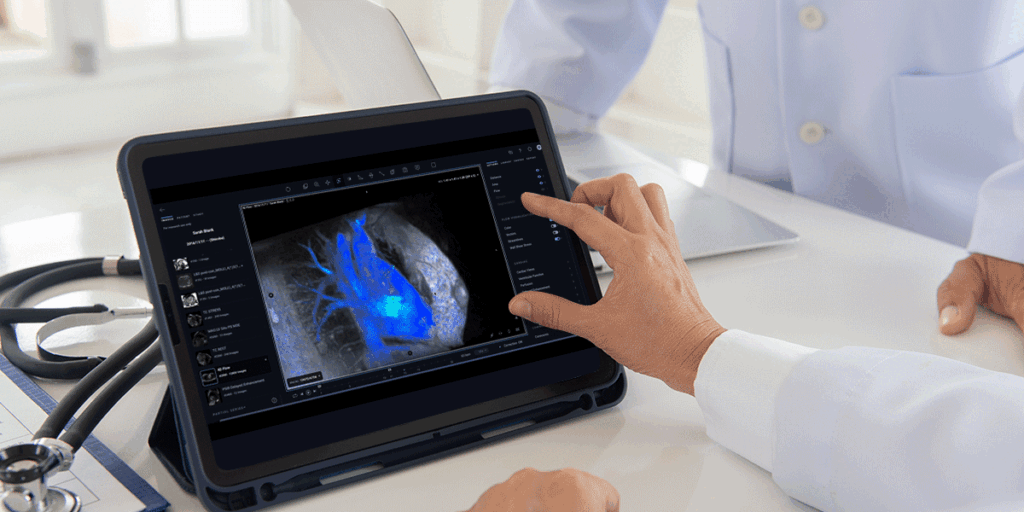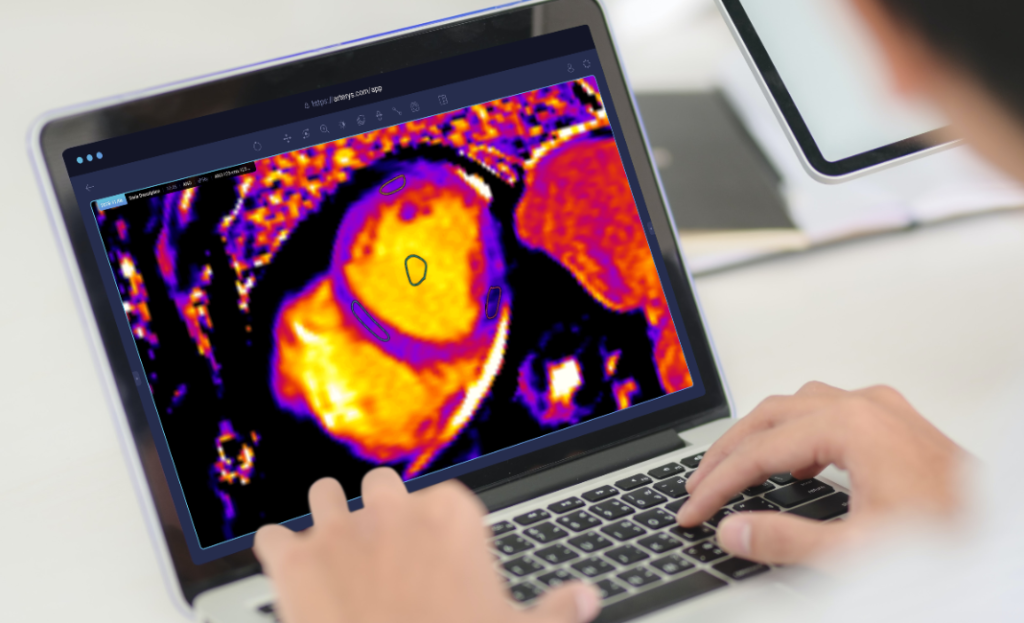AI Solutions
Cardiology
- Cardiology
Artificial intelligence (AI) and machine learning are influencing nearly every aspect of the human condition. Cardiology is not an exception to this trend.
AI in cardiology takes the best feasible action in a situation by incorporating the use of computational algorithms which simulate and perform tasks that traditionally require human intelligence such as problem solving and learning.
Human Bytes offers CARDIO AI (by Arterys) as a comprehensive fully cloud based post processing solution that leverages AI and deep learning to provide automated, fast and repeatable analysis of cardiac MRI images that are as accurate as segmentations performed manually by expert physicians.
4D-FLOW MRI has an enormous potential to provide hemodynamic information (quantification and visualization) for a variety of heart related and abdominal vascular diseases. The 4D-flow parameters provide numerous values that are not only limited to basic 2D parameters. 4D-flow MRI is widely used to image many parts of the body also in the area of congenital heart disease.


CARDIO AI helps cardiologists and radiologists to non-invasively and accurately diagnose and monitor heart conditions, allowing immediate and effective treatment.
- Ventricular function assessment and volume
- 2D flow
- Delayed enhancement
- Perfusion
- T1, T2, T2* mapping
- Fast reliable atrial volume calculation by using biplanar LAX function
- Fast and repeatable automatically generated reports (easy to edit)
- Calculation of volume and long dimension
- Raw and index atrial volume values views
- Reduce scan time by 30%
- Save up to 25 minutes per examination
The Arterys mission is to transform healthcare by reducing subjectivity and variability in clinical diagnosis. Our dream is to bring data-driven medicine to every patient, regardless of where they live. As long as you have access to the web, you have access to Arterys.
We started by improving diagnoses for newborns and kids with heart defects. At the time, pediatric cardiovascular disease was diagnosed with ultrasound, which only offers a partial view of the heart with no blood flow quantifications. Or an MRI captured over grueling hours on the scanning table. Without accurate quantification, cardiac medicine was an educated guess with a high error rate.
The solution was obvious: 4D Flow technology to visualize and quantify blood flow in mere minutes. However, image archiving servers in hospitals couldn’t read 4D Flow’s big data files. With cloud computing, we could put those life-saving 4D Flow images into radiologists hands. In mere moments, physicians could diagnose and make accurate treatment decisions.
Even though we put 4D Flow at radiologists’ fingertips, we still saw physicians manually drawing contours to quantify the size of cardiac ventricles. We decided to power Deep Learning AI with cloud computing GPUs to automatically quantify and segment ventricles as accurately as manual measurements by experienced physicians. In 2017, our technology received the first ever US FDA clearance for leveraging cloud computing and deep learning in a clinical setting.
But we were still not satisfied. Physicians around the world approached us, asking if we could apply the same AI cloud computing approach to image processing and analysis to cancer patients. Then to liver patients. Then lung, breast, brain, and everything in between. The word was getting out that radiologists could receive automatic accurate measurements through deep learning powered in the cloud.
www.arterys.com